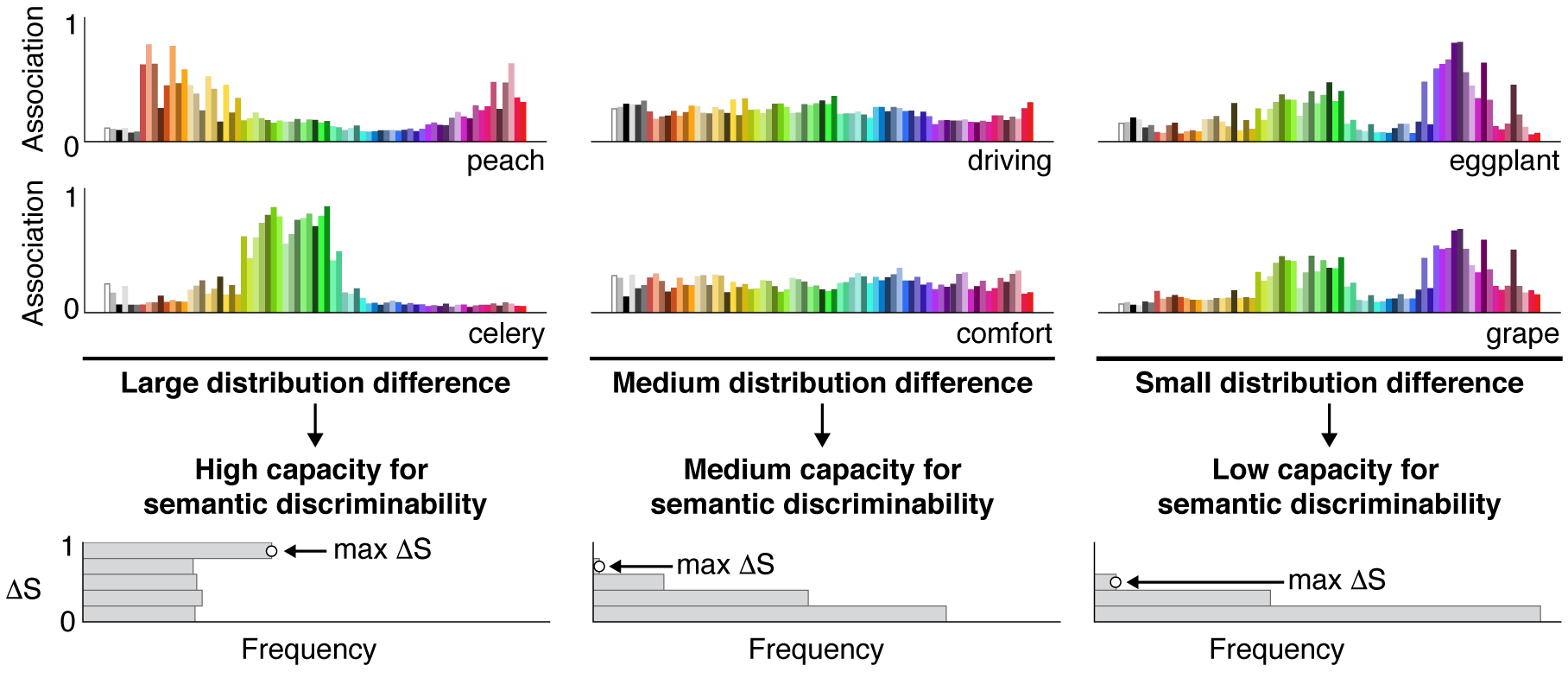 Our paper “Context matters: A theory of semantic discriminability for perceptual encoding systems” received Honorable Mention for best paper at IEEE VIS 20211!
Our paper “Context matters: A theory of semantic discriminability for perceptual encoding systems” received Honorable Mention for best paper at IEEE VIS 20211!
This paper presents semantic discriminability theory, a new theory on constraints for generating semantically discriminable perceptual features for encoding systems that map perceptual features to concepts. We provided evidence supporting two hypotheses that arise from the theory. First, the capacity to create semantically discriminable color palettes for a set of concepts depends on the difference in color-concept association distributions between those concepts, independent of properties of the concepts alone. Second, people can accurately interpret mappings between colors and concepts for concepts previously considered “non-colorable,” to the extent that the colors are semantically discriminable. Although we focused on color in this study, the theory has potential to extend to other types of visual features (e.g., shape, orientation, visual texture) and features in other perceptual modalities (e.g., sound, odor, touch).
Reference: Mukherjee, K., Yin, B., Sherman, B. E., Lessard, L. & Schloss, K. B. Context matters: A theory of semantic discriminability for perceptual encoding systems. IEEE Transactions on Visualization and Computer Graphics. PDF
